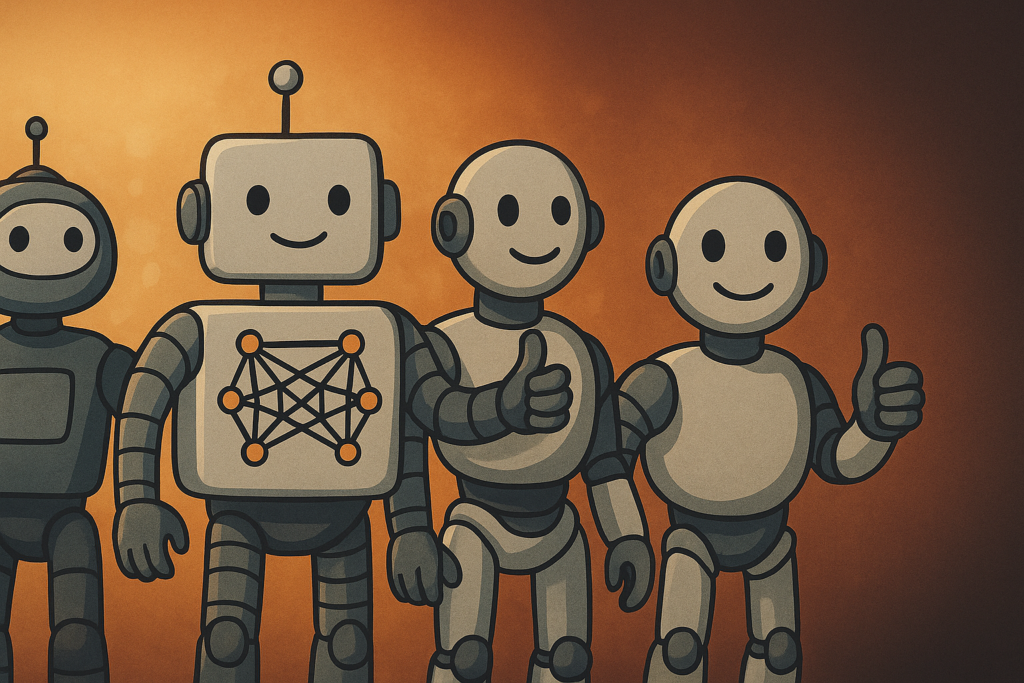When we think of artificial intelligence, most of us picture a chatbot — something that answers questions, tells jokes, or helps you find a restaurant. But AI has quietly grown beyond just having conversations. A new kind of intelligent system is emerging: autonomous AI agents. And they’re not just talking — they’re acting.
These agents don’t need constant instructions. They think, plan, make decisions, and take action — often in ways that surprise even their creators.
What Exactly Is an AI Agent?
Imagine an AI that can not only reply to you but actually go out and get things done. You give it a goal — let’s say, “book my next vacation” — and instead of just showing options, it:
-
Searches flights and hotels
-
Compares prices and reviews
-
Books your tickets
-
Adds everything to your calendar
All without you having to guide it through each step.
That’s what an autonomous agent does — it takes initiative. It doesn’t just follow scripts. It adapts, learns, and handles changing situations on its own.
What’s Making This Possible?
There are a few big breakthroughs driving this shift:
-
Smarter AI models like ChatGPT can now reason, not just reply.
-
Agents can use tools, browse the internet, interact with apps — just like we do.
-
They’re starting to remember things, which helps with long-term tasks.
-
Some even learn from mistakes using techniques like reinforcement learning.
These aren’t science fiction ideas anymore. They’re real, and they’re here.
Where Are We Seeing These Agents in Action?
Let’s look at a few real-life examples:
In Workplaces
Agents are being used to automate tasks that would normally take a team of people — from generating reports to handling customer support emails. Tools like AutoGPT or Microsoft’s Copilot are already doing this.
On the Roads
Self-driving cars are some of the most visible examples. These are full-fledged agents making real-time decisions based on traffic, weather, and safety.
In Businesses
AI agents now manage online stores, reply to customers, adjust pricing, and even launch marketing campaigns — all with very little input.
In Science Labs
Some agents are helping researchers by reading scientific papers, suggesting experiments, and running simulations.
In Games
Games are training grounds for agents that learn strategies and respond dynamically. Systems like DeepMind’s AlphaStar show just how advanced they’re becoming.
Why This Is a Big Deal
This shift means AI is no longer just a tool you use — it’s becoming more like a teammate. One that doesn’t sleep, doesn’t get tired, and can work at massive scale.
Imagine giving an AI agent the goal of launching your new product. It could:
-
Write the copy
-
Design visuals
-
Schedule social media posts
-
Track responses
-
Adjust the campaign based on what’s working
You’re just supervising — not micromanaging.
But It’s Not All Smooth Sailing
There are some real concerns too:
-
What if the agent makes the wrong decision?
-
How much control should it have?
-
Can we trust it with sensitive data?
-
Who’s responsible if something goes wrong?
These questions don’t have simple answers yet. And as agents become more powerful, we’ll need better systems of trust, oversight, and ethics.
Where Do We Go From Here?
In the coming years, we’ll likely see:
-
Agents that work together in teams
-
Agents built specifically for industries like healthcare or law
-
Robots powered by agents doing everything from deliveries to caregiving
-
Agents that manage other AIs (yes, seriously)
We’re entering a world where AI won’t just talk — it’ll do.
The rise of autonomous AI agents marks a turning point. It’s no longer just about smart responses — it’s about smart actions. These agents will change how we work, how we solve problems, and how we build the future.
The chatbot era got us started. But the agent era? That’s where things get truly exciting.

